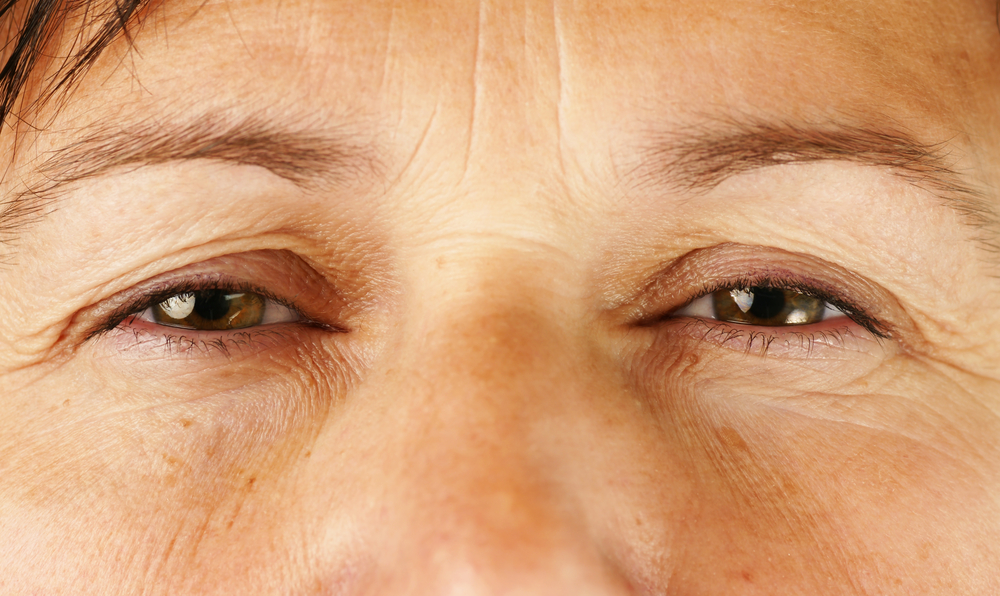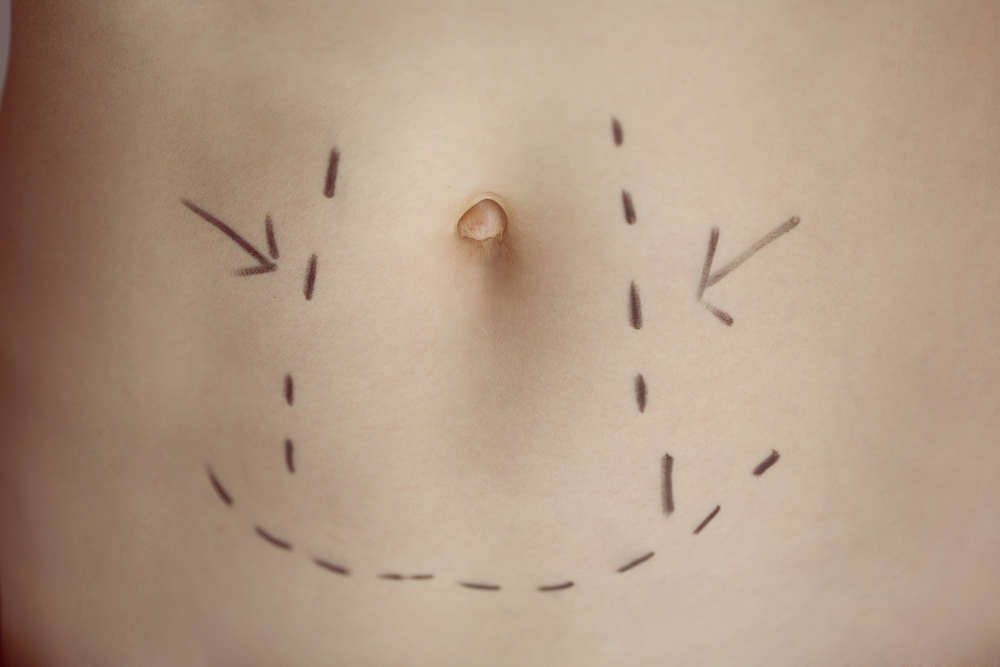Traditional feminist theory suggests that women who subject themselves to elective cosmetic surgery do so in an effort to make themselves more attractive to men, and that the ordeal, not to mention the expense, of going under the knife for aesthetic reasons is motivated by a desperate attempt to realize unrealistic societal standards of what constitutes feminine beauty.
By extension, one might argue that cosmetic surgery is essentially the antithesis of feminist values.
Claudia Woodward, 46, mostly felt pretty good about her body. She generally ate a balanced diet, enjoyed almond croissants over espresso with friends once (sometimes twice) a week, and kept active with Bikram yoga and walks in Central Park. She was married with no children, but devoted to her husband and her work as a family lawyer.
Over the past few years, however, Claudia had started to notice a few changes to her appearance whenever she looked in the mirror. Things that hadn’t really been issues in the past had become more apparent and persistent.
Worse, no matter how many yoga classes she attended, green smoothies enriched with spirulina she drank, or hours she slept, the problems only seemed to become more noticeable.
For one, the dark circles under her eyes where her skin was thinning had grown more pronounced. Her colleagues at work were forever asking her if she was tired. Claudia’s forehead had also begun to take on a heavy expression. Her eyebrows and upper eyelids had started to droop, and the furrows between her eyebrows remained etched into her skin, even when she wasn’t frowning.
She caught herself looking in the mirror ever more frequently, smoothing out the lines, lifting her eyebrows with her fingers, reapplying Touche d’Eclat to conceal the dark circles. Then, surreptitiously one evening when her husband was out, she began researching non-invasive cosmetic procedures, just out of curiosity.
The more Claudia read, the more aware she became of the sheer range of beauty treatments and surgeries capable of reshaping the body and resisting the ravages of aging: it seemed like almost any aesthetic issue could be corrected by knife or needle.
She soon realized that she could refresh the circles beneath her eyes in the same amount of time it took to go down to the grocery store and pick up ingredients for dinner.
When looking at the smooth foreheads of her female colleagues in the office, Claudia found she couldn’t help but wonder if they’d been sneaking off to the surgeon on their lunch breaks, all the while feeling elated about having scheduled her own lunchtime consultation with a cosmetic specialist.
Then she remembered all the Women’s Studies courses she’d taken at Brown back in her college years.
Wasn’t undergoing plastic surgery, even minimally-invasive procedures, a violation of feminist principles? Was injecting one’s face with hyaluronic acid or having fat strategically removed from certain areas of the body a form of regression after decades of fighting the narrow social and sexual ideals women are expected to follow?
Plastic surgery: a form of female empowerment?
Claudia started thinking that perhaps, for contemporary women, the matter was more complex and nuanced than what she’d been taught in university, that it wasn’t necessarily a simple open/shut case.
In school, plastic surgery was often simplistically represented as a tool used to encourage women to conform to restrictive social norms and imitate unrealistic images of feminine beauty, usually shaped by men.
But maybe plastic surgery could also be a tool to empower women in their workplace and social circles, and help them physically transform their outer self to more accurately reflect their internal landscape.
For feminist writer Angela Neustatter, undergoing plastic surgery in her forties was a personal and informed choice. She noted that her decision was construed by some self-identified feminists as evidence of “body loathing,” when for her, plastic surgery was more about preserving the expressive eyes she loved and used to help her communicate in her work as a journalist.
“I had an eye job in my forties when my eyes seemed to be disappearing into a reptilian layer of skin folds. This made me miserable because we communicate so much with our eyes, and journalists, more than most.”
Neustatter resolved to be open about her decision to undergo blepharoplasty because she wanted to be transparent about her method of dealing with the human condition from a feminist perspective. The condemnation and criticism directed towards her was unexpected, and she was accused of succumbing to the fear of aging.
Such a mentality generalizes plastic surgery as weak and anti-feminist. However, this view overlooks the fact that for both women and men alike, the body is an expression and extension of the self. In Neustatter’s case, blepharoplasty or eyelid surgery allowed her to maintain a beloved part of her identity that was integral to how she interacted with the world and performed her professional role.
According to feminist social critic Gloria Steinem, each individual woman’s body demands to be accepted on its own terms. This should mean that women can freely choose to correct tear troughs with Juvederm, or undergo CoolSculpting to help tone their postpartum love handles if they so desire.
While it’s true plastic surgery can be used to confine women within constrictive stereotypes, it can equally be used to liberate women so their bodies are more aligned with their identities.
After all, plastic surgery operates on the premise of the plasticity of the body: the fact that the body can be shaped. Body shaping is a practice everyone engages in: when they style their hair, work out at the gym or get a pedicure.
Women, career, and cosmetic surgery: a female plastic surgeon’s perspective
A female plastic surgeon in a profession dominated by men, Dr. Hayley Brown was already familiar with the unique tensions and challenges contemporary professional women face.
According to some critics and onlookers, it was impossible to practice as a plastic surgeon and simultaneously be a wife and mother. Nevertheless, she forged ahead with her aspirations, opened her own practice, the Desert Hills Plastic Surgery Center in Las Vegas, married, and had four children.
Plastic surgery has little to do with conforming to societal pressures or male expectations.
Dr. Haley Brown
The various roles she embodied as a woman, a wife, mother and professional, gave her special insight into the positive and transformative changes plastic surgery can bring to women. Body contouring procedures such as tummy tucks and breast surgery allow women to feel complete and confident in themselves, while facial rejuvenation surgery helps to unwind the effects of aging, stress and fatigue.
“The enhanced image and self-esteem promotes courage and the strength to compete, which serves to improve economic status and enhance society overall,” explains Dr Brown. “Plastic surgery has little to do with conforming to societal pressures or male expectations.”
Feeling and looking good holds tangible benefits in terms of career. Economists have long acknowledged a phenomenon referred to as the “beauty premium”: the principle that physically attractive people tend to have greater success in job interviews, office politics and promotions.
Women who are confident in their own skin and present themselves well are likely to feel more empowered and perform better professionally.
A 2017 study found that patients who had undergone plastic surgery and enjoyed a subsequent boost in their self esteem ( the majority of patients) experienced greater job satisfaction and lower levels of burnout. The findings support the idea that career success is due in part to the fact that people who think they are beautiful have greater self-esteem.
Plastic surgery can help women to feel more confident at work, and as such more likely to compete with their male counterparts and succeed.
To go under the knife or not? It’s your choice, and your choice only
One of the most common declarations from women who’ve undergone a cosmetic surgery procedure is that the gap between how they look and how they feel has been bridged, and in some cases, completely closed. For women deciding whether to undergo a cosmetic procedure, the guiding principle informing their choice should be how it will affect the way they feel about themselves.
A recent clinical study published in the Journal of Clinical Psychological Science demonstrated that women who underwent surgery to feel better about themselves and also had realistic expectations of what surgery could achieve, enjoyed enhanced well-being after surgery.
Some of the benefits outlined in the study included an improvement in self-confidence, better quality of life and life satisfaction, as well as a reduction in social phobias, depression and anxiety. Interestingly, the study also pointed out how the women not only felt better about the body part that had been treated, but their entire body as a whole.
For Claudia Woodward, these findings resonated. In the weeks after she had dermal fillers injected into her tear troughs and a subtle Botox brow lift, she felt vindicated in her decision. She noticed she walked just a little bit taller, voiced her opinions in the workplace just a little bit louder, and just felt better about herself in general, noticing the positive impact on her relationship with her husband and friends.
If empowerment, improved self-confidence and enhanced relationships are some of the outcomes of cosmetic surgery, then perhaps plastic surgery performed for the right reasons should be construed as a feminist act.









